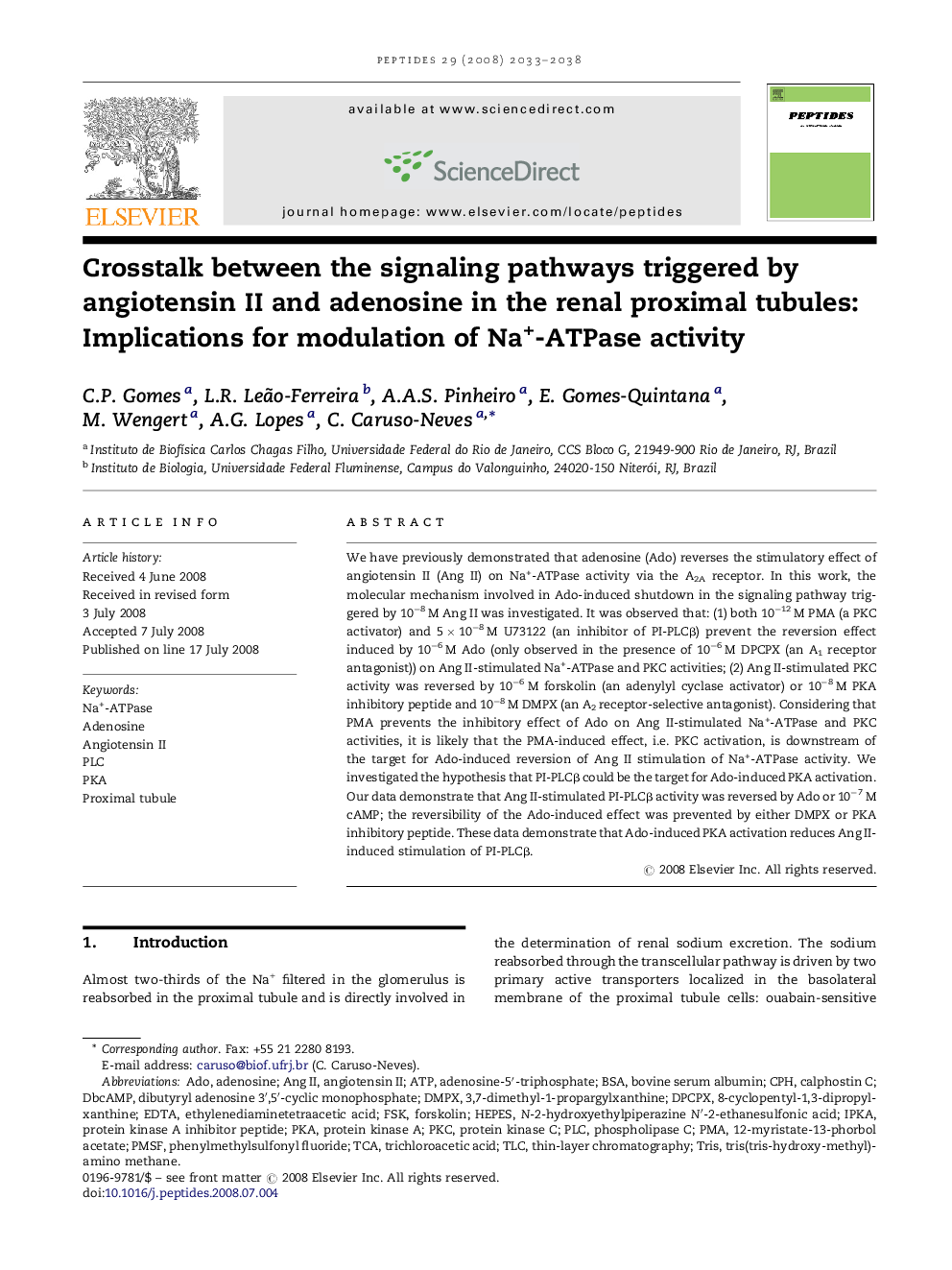| Article ID | Journal | Published Year | Pages | File Type |
|---|---|---|---|---|
| 2007491 | Peptides | 2008 | 6 Pages |
We have previously demonstrated that adenosine (Ado) reverses the stimulatory effect of angiotensin II (Ang II) on Na+-ATPase activity via the A2A receptor. In this work, the molecular mechanism involved in Ado-induced shutdown in the signaling pathway triggered by 10−8 M Ang II was investigated. It was observed that: (1) both 10−12 M PMA (a PKC activator) and 5 × 10−8 M U73122 (an inhibitor of PI-PLCβ) prevent the reversion effect induced by 10−6 M Ado (only observed in the presence of 10−6 M DPCPX (an A1 receptor antagonist)) on Ang II-stimulated Na+-ATPase and PKC activities; (2) Ang II-stimulated PKC activity was reversed by 10−6 M forskolin (an adenylyl cyclase activator) or 10−8 M PKA inhibitory peptide and 10−8 M DMPX (an A2 receptor-selective antagonist). Considering that PMA prevents the inhibitory effect of Ado on Ang II-stimulated Na+-ATPase and PKC activities, it is likely that the PMA-induced effect, i.e. PKC activation, is downstream of the target for Ado-induced reversion of Ang II stimulation of Na+-ATPase activity. We investigated the hypothesis that PI-PLCβ could be the target for Ado-induced PKA activation. Our data demonstrate that Ang II-stimulated PI-PLCβ activity was reversed by Ado or 10−7 M cAMP; the reversibility of the Ado-induced effect was prevented by either DMPX or PKA inhibitory peptide. These data demonstrate that Ado-induced PKA activation reduces Ang II-induced stimulation of PI-PLCβ.
